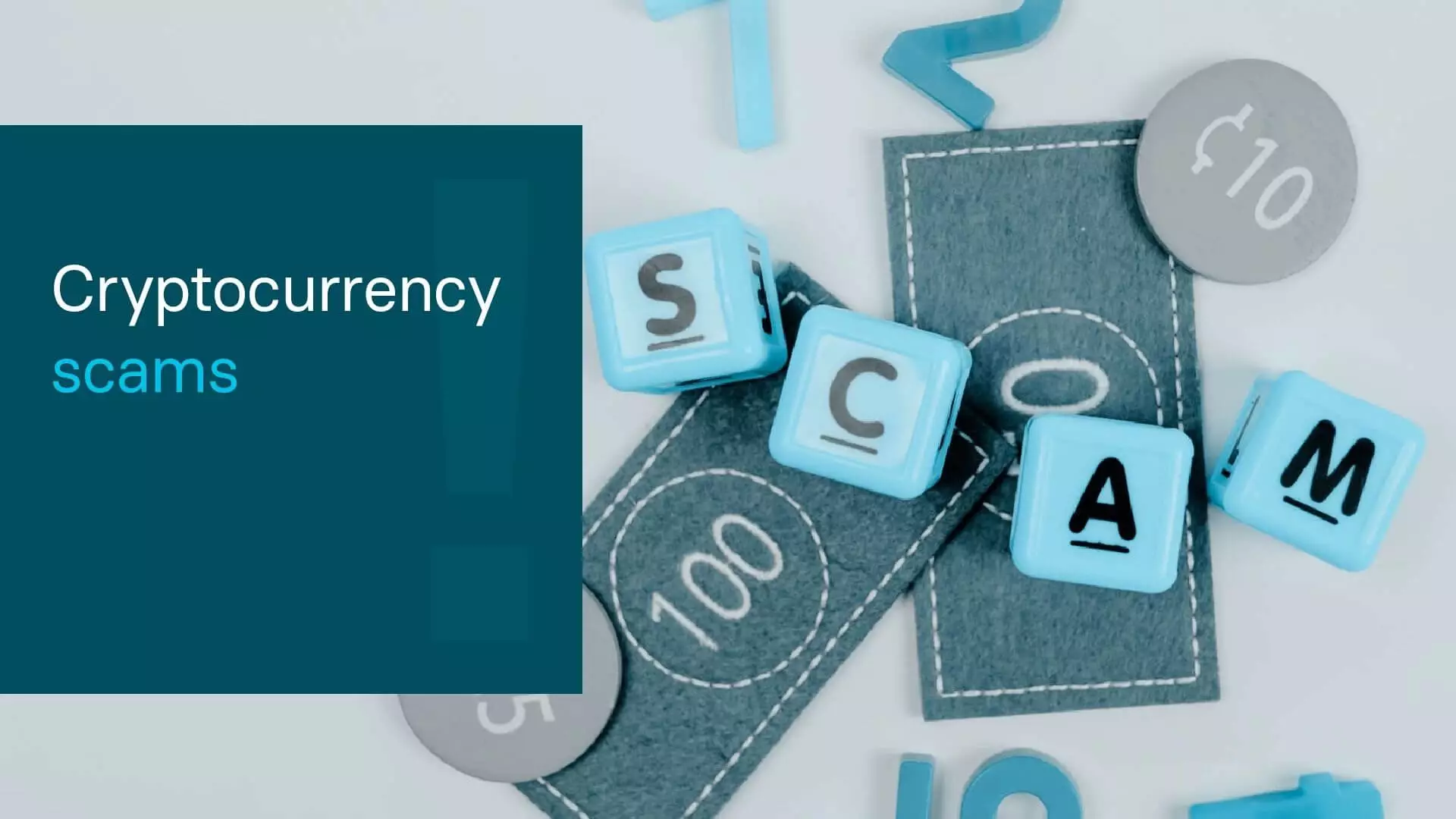
Cryptocurrency has exploded in popularity. But with its rise comes an increase in scams targeting unsuspecting investors. Whether you’re new to crypto or have been involved for a while, it’s important to know how to protect yourself. In this blog post, we’ll explore the common types of cryptocurrency scams and how to avoid them.

Content
1. Common Cryptocurrency Scams
There are several ways scammers can try to steal your crypto or money. Here are the most common scams:
Phishing Scams
In phishing scams, criminals send fake emails or messages pretending to be from legitimate crypto platforms. They often contain a link that leads to a fake website designed to steal your login information. Once the scammers get access to your account, they can take your funds.
Fake Exchanges and Wallets
Scammers create fake cryptocurrency exchanges or wallets that look real. When you deposit your money or crypto, it disappears. These fake platforms often promise high returns or special deals to lure in victims.
Ponzi Schemes
Ponzi schemes are investment scams where you’re promised big profits with little risk. Early investors are paid with the money from new investors. But once the scammer runs out of new recruits, the scheme collapses, and everyone loses their money.
Pump-and-Dump Scams
In a pump-and-dump scam, scammers artificially inflate the price of a cryptocurrency by spreading false information. Once the price is high, they sell their holdings, leaving everyone else with worthless coins as the price crashes.
Rug Pulls
A rug pull happens when developers promote a new cryptocurrency project, raise money, and then suddenly disappear, taking all the funds with them. Investors are left with tokens that have no value.
2. How to Avoid Cryptocurrency Scams
Now that you know the most common scams, here’s how you can protect yourself from getting ripped off:
Do Your Research
Before investing in any cryptocurrency, exchange, or project, do thorough research. Check if the platform or coin has a good reputation. Look for reviews, news articles, and information from trustworthy sources. Make sure the project has a solid team with real identities.
Use Reputable Exchanges and Wallets
Only use well-known, reputable cryptocurrency exchanges and wallets. Avoid platforms that you’ve never heard of, especially if they promise very high returns or bonuses. Popular exchanges like Coinbase, Binance, and Kraken are examples of platforms that are widely trusted.
Double-Check Website URLs
Scammers create fake websites that look almost identical to real ones. Always double-check the URL to make sure you’re on the correct website. Be cautious when clicking on links in emails, texts, or social media posts. It’s safer to type the website address directly into your browser.
Enable Two-Factor Authentication (2FA)
Two-factor authentication (2FA) adds an extra layer of security to your account. With 2FA, even if a scammer gets your password, they won’t be able to log in without the second verification step. Always enable 2FA on your crypto accounts.
Avoid “Too Good to Be True” Offers
If an investment opportunity seems too good to be true, it probably is. Be wary of platforms or people promising guaranteed profits, risk-free returns, or opportunities that require little to no effort. Scammers often use these tactics to lure victims into Ponzi schemes or other scams.
Don’t Share Private Information
Never share your private keys, seed phrases, or login information with anyone. These are like the keys to your crypto wallet, and once someone has them, they can access your funds. Legitimate companies will never ask for your private keys.
Watch Out for Pressure Tactics
Scammers often use high-pressure tactics to get you to make quick decisions. They might claim that you’ll miss out on a big opportunity if you don’t act now. Take your time and don’t let anyone rush you into making an investment or financial decision.
Be Skeptical of Social Media Promotions
Be careful about offers or investment tips that come from social media. Scammers often impersonate influencers, celebrities, or crypto experts to trick people into handing over money or crypto. Always verify the information from reliable sources.
3. What to Do If You’ve Been Scammed
If you think you’ve fallen victim to a cryptocurrency scam, here’s what you should do:
- Report it to the exchange: If the scam happened on an exchange, contact their customer service immediately. Some platforms may be able to freeze your account or reverse a transaction if caught early.
- Notify local authorities: Report the scam to your local law enforcement agency. In some countries, there are special units that deal with online fraud.
- Share your experience: Inform the crypto community about the scam so others can avoid falling for the same trap.
Conclusion
Cryptocurrency is an exciting but risky space. By understanding the common scams and taking steps to protect yourself, you can minimize the chances of getting ripped off. Always stay alert, do your research, and never rush into any investment. Staying informed is your best defense against crypto scams.

Jeremy is a crypto blog author who has been in the blockchain industry for 3 years. He loves to read and write about cryptocurrencies, blockchain technology, and cryptocurrency news. He is also an avid trader of various digital assets such as bitcoin and other altcoins on various exchanges including Binance, Bitfinex, Kraken, Kucoin etc.

